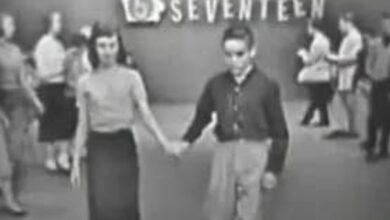Like An Old Lion, His Roar Weakened, But He Remained A Lion; Johnny Cash Evoked Respect, Love, Sadness, Admiration
Johnny Cash’s final live performance on July 5, 2003, at the Carter Family Fold in Hiltons, Virginia, remains a profound and emotionally charged moment in the history of American music. Just two months before his death, Cash, despite his frailty and reliance on a wheelchair, gave a moving 30-minute set that reflected his enduring passion and indomitable spirit. This performance was a powerful testament to his resilience and the lasting impact of his musical legacy.
The setlist for this final show was a carefully curated selection of Cash’s most renowned songs, each carrying the weight of his long and storied career. The performance included timeless classics such as “Folsom Prison Blues,” “I Walk the Line,” “Sunday Mornin’ Comin’ Down,” “Ring of Fire,” “Angel Band,” “Big River,” and “Understand Your Man.” These songs not only highlighted his exceptional talent but also echoed the depth of his personal experiences and the emotional weight of his recent loss.
Cash’s wife, June Carter Cash, who had passed away just two months earlier in May 2003, was deeply on his mind during this final performance. Cash dedicated “Ring of Fire” to her, speaking poignantly about how her spirit was with him that night, providing him with strength and inspiration despite his declining health. This heartfelt tribute added an extra layer of emotional depth to the performance, underscoring the profound impact June Carter had on both his life and his career.
Although Cash’s voice was noticeably shaky due to his deteriorating health, it retained the distinctive depth and resonance that had defined his music for decades. His performance was supported by guitarist Jerry Hensley and bassist Bobby Starnes, whose accompaniment provided a fitting backdrop to Cash’s emotionally charged delivery. The audience, fully aware of the historical and personal significance of the moment, experienced a concert that was both intimate and memorable.
The final performance at the Carter Family Fold was more than just a musical event; it was a moving display of Cash’s unwavering dedication to his craft and his deep connection with his audience. Despite his physical challenges, his ability to convey profound emotions through his music remained as strong as ever. This concert served as a poignant conclusion to a remarkable career, highlighting Cash’s resilience and the enduring nature of his artistic legacy.
Johnny Cash’s influence on country music and American culture is immeasurable. Known for his deep, distinctive voice and rebellious persona, Cash’s contributions to music extended far beyond his hit singles. His legacy includes a rich catalog of songs that explore themes of hardship, redemption, and spirituality, resonating with audiences across generations. His music, characterized by its honesty and emotional depth, has left an indelible mark on the country genre and beyond.
Cash’s career began in the early 1950s and quickly gained momentum with the release of his debut single “Cry! Cry! Cry!” His innovative approach to country music, combined with his blend of rock and roll influences, helped him carve out a unique niche in the music industry. Over the decades, he released numerous albums, each reflecting his evolving artistic vision and personal experiences.
His iconic albums, such as *At Folsom Prison* and *At San Quentin*, are celebrated for their raw energy and authenticity, capturing the essence of Cash’s rebellious spirit and deep empathy for those on the margins of society. His collaborations with other legendary artists, including Bob Dylan and Willie Nelson, further cemented his status as a musical innovator.
Cash’s later work, particularly his series of American Recordings produced by Rick Rubin, showcased a different side of his artistry. These recordings featured stripped-down arrangements that highlighted his voice and storytelling prowess, earning him renewed acclaim and introducing his music to a new generation of fans.
In addition to his musical achievements, Cash’s life and career were marked by personal struggles and triumphs. His battles with addiction and subsequent recovery were well-documented and reflected in his music, adding layers of complexity to his public persona. His ability to transform personal adversity into powerful, relatable art made him a beloved figure both within and outside the country music community.
Johnny Cash’s final performance was a fitting tribute to his extraordinary career and enduring legacy. It encapsulated the essence of his artistry, marked by an unyielding commitment to his music and an unwavering connection with his audience. As his final public appearance, it served as a poignant reminder of his lasting impact on the world of music and his ability to touch the hearts of listeners through his profound and evocative songs.





